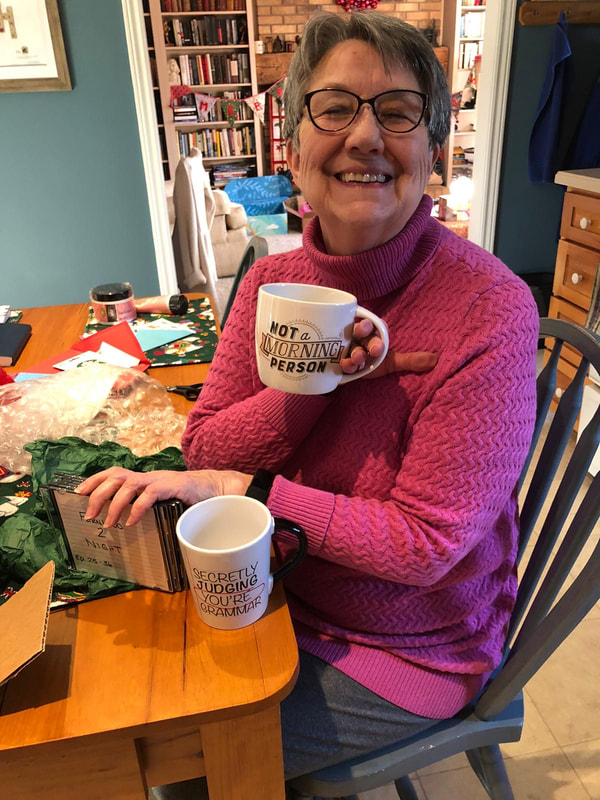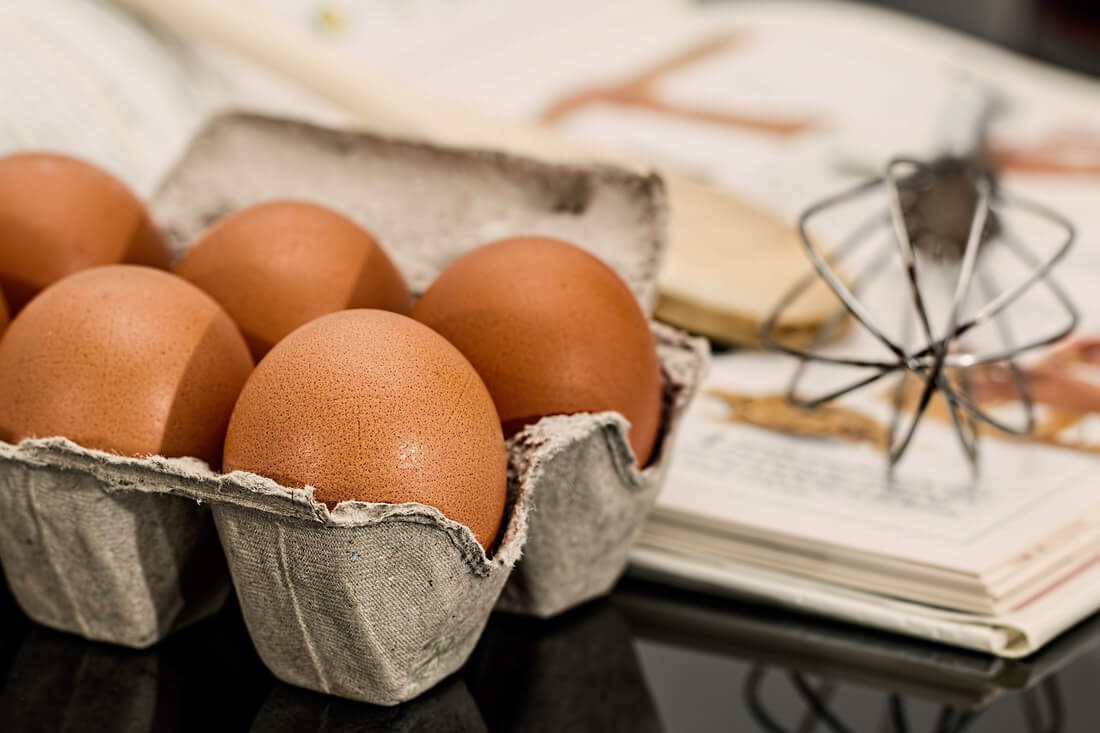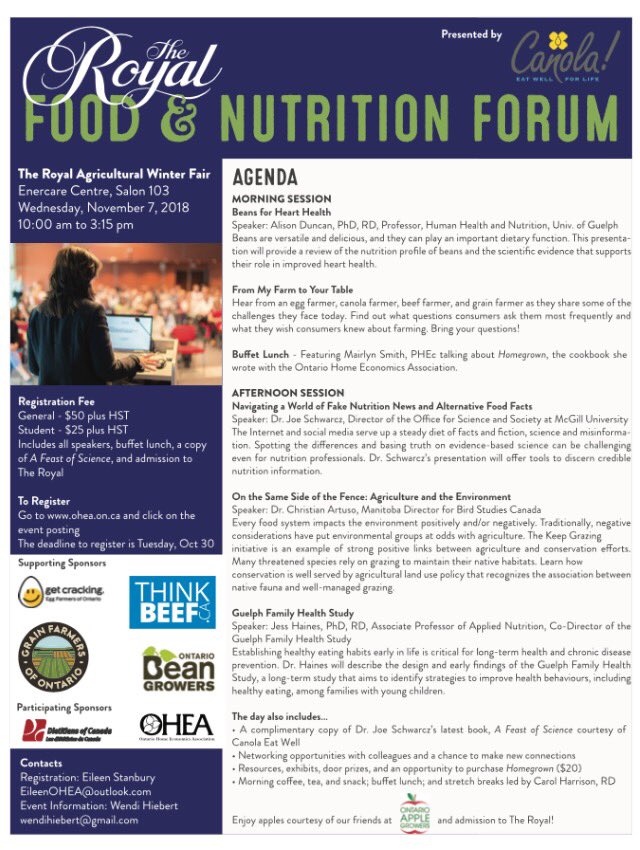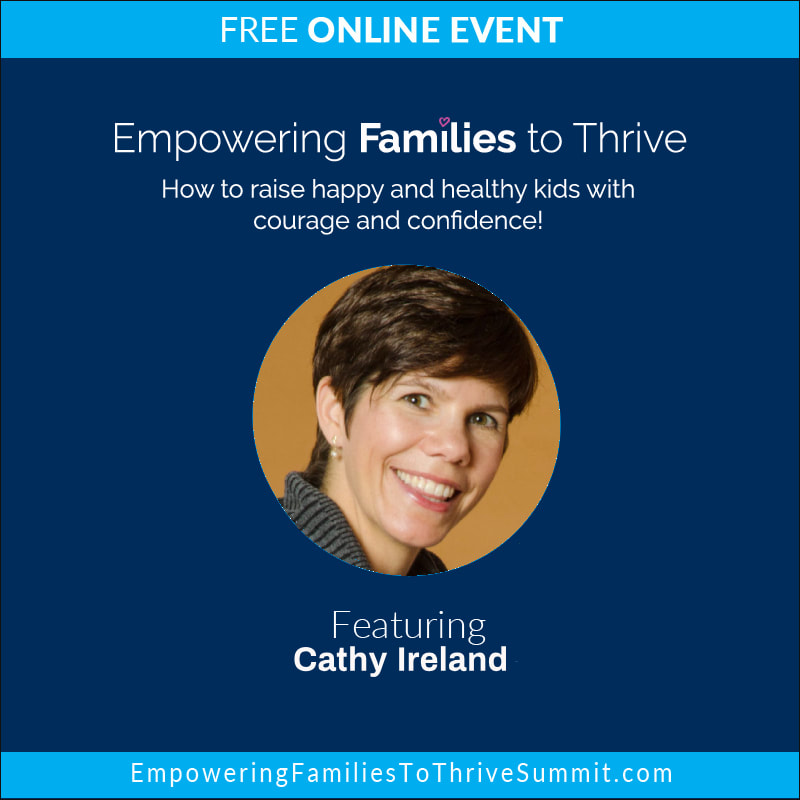|
On July 13, Statistics Canada released data and analyses from the 2021 Census on families, households, and marital status. This highly anticipated release provides Canadians with its first updated portrait of family households during the pandemic and is the agency’s first to report on the gender diversity of couples in Canada. This release includes information on family structure, marital status, living arrangements, foster children, couples with and without children, and a variety of other topics related to family households across the country. HIGHLIGHTS:
For more information, visit Statistics Canada by clicking here.
0 Comments
Having been invited to write this blog for the Ontario Home Economics Association, I thought I’d start by sharing a sample of fond memories of my 30.5 years in the classroom. After a frenzy of reading memorabilia back to 1971, I had material for multiple pages. Yes, I AM one of those teachers who saved every thank you card I ever received. Thank you to all my former students! Let’s start with “ Parenting” (now “Raising Healthy Children“) . I taught the grade 11 Parenting course at least 35 times and loved it. It was our most popular Family Studies (Social Sciences) course and attracted large numbers of males and females. The first day in class was memorable. This is a True Story! The students would come to class wanting to know when they would get their assignments. Seriously. In the parenting course, simulations that put students in the role of partner, parent and/or caregiver are effective teaching tools, popular with parents ( I still have a picture of the proud “grandparents” to their daughter’s “egg baby”) and excellent exposure to the rest of the school. I have been told that asking for assignments on the first day is unique. A few years ago, I met a former student (now a lawyer) with his son and daughter. They were about 8 and 10. After the usual introductions, I asked them how their Dad was doing as a parent, since I had taught both their Dad and their aunt, his sister. As their Dad grinned behind them, they thought for a minute and then gave me a careful and positive evaluation of his parenting skills: “ firm and fair, follows through on discipline, plays with us and reads to us every night. All in all, he’s a pretty good Dad”, they said. I loved meeting the three of them. Big perk of the job. Anyone who has taught high-school students knows that being the “big tough guy” is part of the developing persona of young males. Since a number of them took Parenting, it gave me an opportunity to see them in a different role, that of a loving uncle or big brother to a small child. Having a children’s party as part of the curriculum was one of the assignments the students enjoyed. They would have to plan games, food and décor for a children’s party. And they could bring a small child ! I have to admire the parents of the pre-schoolers for allowing them to spend part of a day surrounded by teenagers. But they did. Perhaps too many regulations would prohibit this activity now, but these parties were a huge success. As the teacher, it gave me a chance to see my students as loving people; hugging and comforting their small charges. This interaction revealed teenagers for the wonderful people they are. Reports in the media don’t tell these stories enough. When our son was about 9 months old, I took him to a party with “ mummy’s “students. He immediately attached himself to the toughest young man in the class! I think he was attracted to his hair and jewelry! An awesome time was had by all. I was so proud of both of them. Our daughter, 4 years older and in regular school, was jealous. Which leads me to our two children, who in their words, had the “best baby-sitters ever”. They wanted a “real” babysitter when we went out; “ real” by their definition being one of mummy’s or daddy’s students, not a grandparent. “They play games with us, build legos and teach us gymnastics and football ‘n’ stuff.” Our children are in their 30’s and still remember their favorite babysitters. Family studies, unlike other subject areas, deals with the daily patterns of families and as such can promote a closer bond between student and teacher. Normally quiet students feel more comfortable sharing life experiences in class. How their parents met, how long their Mom was in labour before their birth, how much they like being with their nieces and nephews, and their plans for the future are comfortable topics for discussion. Frequently they stayed after class in groups or individually to talk about personal problems and ask for advice. Many Family Studies teachers are also qualified guidance counselors. It is a natural fit. Over the years I was able to help a grade nine student learn some quick and easy meals to prepare for his younger siblings because his Mom worked nights. I had the honour of becoming a sort-of-Mom for a young man who had lost his Mom. We had “Mom and son” chats daily. Some of my “Families in Canada” students participated in the “Canadian Living” TV show to give advice to parents on the rearing of teenagers. Another great memory! And I’ve had to say good-bye to several of the “ best ever” who lost their battles with cancer. Devastating. Never forgotten. I’ll end with a very special meeting at McDonald’s with a student I taught in my first year of teaching. She was in my “Housing and Interior Design" grade twelve course. Since I’ve always taken the word “Economist” very seriously in my teaching, I included money related skills in most classes. I had developed a “ How to Buy a House” game. That was what I called it so the students wouldn’t realize that math, real estate and legal jargon were part of the “game." Working in pairs, they “bought” a house, learned new words, did the math calculations up to and including “closing costs." So here we are, both parents of adult children in line for a coffee. She said, “ I have been meaning to thank you for that great “buying a house game” we did in class years ago. It helped my husband and I when we were buying our house AND I passed along your advice to MY CHILDREN. That “game” was really helpful. THANKS. " Best day ever. Forty-five years later. Who wouldn’t want to teach Family Studies?
Aging is part of life and eventually life gets more challenging as we grow older. Aging not only affects the individual but the care giving family as well. Due to the rise in technology, we are seeing people live longer and at the same time experiencing a higher prevalence of chronic illness. Statistics Canada states that 8 million Canadians aged 15 and above have provided care for a family member or friend with a chronic health illness linked with aging (Statistics Canada, 2015). This connection releases hormones that improve mood, diminish stress, supports physical and emotional wellbeing for the aging (Smith et al., 2021). This early care giving relationship allows those cared for to feel part of the family and can be the least invasive situation for the care giving family allowing both to continue to thrive. At some point in time the individuals will need more assistance beyond the family’s capabilities and then the topic of burden of care may arise. This describes the physical, emotional, social and financial issues caregivers cope with everyday (O’Neill & Ross., 1991). Prolonged care giving periods can create consequences for the caregivers such as anxiety and depression which can lead to being more prone to illness due to a weakened immune system, obesity and other chronic illnesses (Womenshealth, 2015). Ask yourself what’s best for them? After all that’s the goal, right? This brings us to another stage in our lives, palliative. Palliative care improves wellbeing and aides in resilience of seriously ill patients as well as their families. This type of care brings in professionals from multiple disciplines such as physicians, personal support workers and chaplains for example (Shmerling, 2019). This type of care is personalized to the individual’s needs. This area improves quality of life in patients and their families, physical distress, discomfort and can help them live longer. Another area of palliative care is how to approach nutrition. The nutritional goal for palliative individuals is different than someone in the general population. These individuals experience higher amounts of fatigue and a sporadic appetite. They are battling a chronic illness which greatly diminishes their energy stores. Food options that are high in protein and calories will benefit the palliative care individual. Depending on the severity of the disease they could require the same amount of protein an endurance athlete consumes or more. Allow the individual to pick their favorite foods, desserts, or comfort foods, anything to get them to eat. In saying that, it’s important to still eat a variety of food to avoid deficiencies which could affect nerves and muscle and cause future complications (Government of South Australia, 2012). The goal is to ensure their last few weeks, months or even years are filled with happiness and social support. You may not feel like a superhero but that’s exactly how your loved one views you. Remember, take care of them and yourself. References: Government of South Australia. (2012). Diet and Nutrition in Palliative Care. Adelaide Hills Community Health Service. Retrieved from https://www.caresearch.com.au/Portals/20/Documents/Diet-And-Nutrition-Palliative-Care_AdlHillsCommHlthServ.pdf. O'Neill, G., & Ross, M. M. (1991). Burden of care: an important concept for nurses. Health care for women international, 12(1), 111–121. https://doi.org/10.1080/07399339109515931 Shmerling, R. (2019, November 12). What is palliative care, and who can benefit from it? Harvard Health. Retrieved from https://www.health.harvard.edu/blog/what-is-palliative-care-and-who-can-benefit-from-it-2019111118186. Smith, M., Segal, J., & Robinson, L. (2021, July 20). Family caregiving. HelpGuide.org. Retrieved from https://www.helpguide.org/articles/parenting-family/family-caregiving.htm#. Statistics Canada. (2015, November 27). Family caregiving: What are the consequences? Government of Canada, Statistics Canada. Retrieved from https://www150.statcan.gc.ca/n1/pub/75-006-x/2013001/article/11858-eng.htm. Womens Health. (2015). Caregiver stress . Office on Women's Health. Retrieved from https://www.womenshealth.gov/a-z-topics/caregiver-stress.
Being social has become second nature to us and we can’t live without it. We are currently experiencing a massive social reconstruction due to COVID-19. It doesn’t matter what age; we are all affected in one way or another. The impact on the elderly has been quite significant. By 2026 the elderly population will represent 21.2% of the Canadian population (White et al., 2013). This trend is supported by improvements in modern technology, education, living and working conditions (Lorinc, 2008). As we age the demand for social support increases due to the limited frequency of interactions especially in those living alone. Having this lack of interaction poses strain on the elderly which can lead to emotional disfunction, loneliness and can worsen into depression (Rhodes, 2016). A study found that mental and physical health in the elderly were impacted. They reported an increase of anxiety, depression, poor sleep quality and physical inactivity during the lockdowns (Loyola et al., 2020). Elderly, being more susceptible to contracting COVID-19 were restricted with what they could do such as visiting family, grocery shopping and sometimes even walking around their neighbourhoods. Not taking part in their daily routines restricted them from living life well in retirement. What they thought their retirement might look like has been in a constant disarray since COVID-19 surfaced. Everyday there was new information in the media causing concern and confusion for this very vulnerable population. We saw the emergence of the app Zoom which saw a 300% increase globally (SmartBear Software, 2021). It was a learning curve, but it soon became part of our daily lives. According to Stats Canada 60% of seniors (80 plus) in 2016 didn’t have internet access (Schimmele & Davidson, 2019). One could extrapolate these findings and assume these numbers are lower in 2021. Video calling is a great alternative to in person interactions because it allows for each party to form that connection without the physical aspect therefore keeping everyone safe. Those 60% without internet had to be creative to see their loved ones, such as a porch visit and/or drive-bys. As vaccines were discovered and implemented, regulations for those vaccinated were somewhat eased. This gave us the privilege to hug our loved ones once again. Having this physical connection can help jump start the social connections that we made with our vulnerable grand and/or parents. Call your older loved ones as they need social interaction to thrive. References: Lorinc, J. (2008, Aug 09). The medicare myth that refuses to die. The Globe and Mail http://ezproxy.lib.ryerson.ca/login?url=https://www-proquest-com.ezproxy.lib.ryerson.ca/newspapers/medicare-myth-that-refuses-die/docview/382699579/se-2?accountid=13631 Rhodes. (2016, November 18). Older Adults and the Importance of Social Interaction: A.G. Rhodes. A.G. Rhodes |. https://www.agrhodes.org/blog/notable-newsworthy/older-adults-and-the-importance-of-social-interaction/#:~:text=Studies%20have%20proven%20that%20regular,mental%20health%20for%20senior%20citizens.&text=By%20contrast%2C%20social%20isolation%20typically,other%20mental%20and%20physical%20issues. Schimmele, C., & Davidson, J. (2019, July 10). Evolving Internet Use Among Canadian Seniors. Statistics Canada. Retrieved from https://www150.statcan.gc.ca/n1/pub/11f0019m/11f0019m2019015-eng.htm. Sepúlveda-Loyola, W., Rodríguez-Sánchez, I., Pérez-Rodríguez, P., Ganz, F., Torralba, R., Oliveira, D. V., & Rodríguez-Mañas, L. (2020). Impact of Social Isolation Due to COVID-19 on Health in Older People: Mental and Physical Effects and Recommendations. The Journal of Nutrition, Health & Aging, 1–10. Advance online publication. https://doi.org/10.1007/s12603-020-1469-2 SmartBear Software. (2021). App Usage & Popularity Statistics During Covid-19. Bugsnag. Retrieved from https://www.bugsnag.com/covid-19-app-usage-error-data-report. White, J., Martin, T. & S. Bartolic. (2013). Families Across the Life Course. Toronto, ON: Pearson Canada Inc. (pp.259-291).
By: Mary Carver, P.H.Ec. Professional Home Economist (P.H.Ec.) Mary Carver gives suggestions to help build memories with your family this Family Day.
The family has been described as the most basic and important unit in society. Most people believe that families build character, values, and teach love and respect. Many parents make family-time a priority over all else. Others maintain that healthy, happy families create healthy, happy communities. By: Mary Carver, P.H.Ec. Adapted from a previous OHEA media release for the Ask a Professional Home Economists (P.H.Ec.) series. A familiar tune reminds us that “chestnuts are roasting on an open fire”, yet most don't experience such an event as we scramble to write cards, wrap gifts, host parties, prepare food, and create our own memories. Despite all the preparations we make for the “perfect” holiday season, many times the best part really does begin in the kitchen.
Foods served at this festive time can become family favourites, creating wonderful traditions and warm memories to pass along to other generations. If you don’t have seasonal food traditions at your house, it’s never too late to start some. And a gift from the kitchen comes from the heart and is always in good taste! Professional Home Economists (P.H.Ec.) were asked to share some of their favourite family recipes. Here are a few that we think you will enjoy, year after year. Much of the fun is sharing “family time” in the kitchen, so grab a partner and cook up some culinary memories this holiday season. By: Donna-Marie Pye, P.H.Ec. Adapted from a previous OHEA media release for the Ask a Professional Home Economists (P.H.Ec.) series. After many years of slow cooking, and two cookbooks later, I am even more convinced of the marvelous benefits of this appliance. Not only are slow cookers convenient and portable, but cooking foods at low heat produces flavorful, tender results.
Slow cooking tenderizes tougher cuts of meat by cooking them in their own juices and slowly breaking down the tough connective tissues. Stews and chilies don’t dry out our stick to the bottom of the pot and the even, low temperature ensures perfect results with more delicate dishes such as puddings and custards. Slow cooking is for everyone – families, couples, students and seniors. Whether you are on a tight budget or love leisurely cooking, slow cookers can provide good, healthy food without requiring you to spend hours over a hot stove. The Ontario Home Economics Association (OHEA) is here to help during the holiday season with entertaining tips, recipes and healthy holiday eating advice. These media releases were submitted in previous years and have valuable advice as you prepare for the holiday season!
By: Wendi Hiebert, P.H.Ec. Another great speaker has just been added to the agenda for the Food and Nutrition Forum at The Royal! Just one of many reasons why you should register for this event.
Pat Crocker has released a timely cookbook - Healing Cannabis Edibles: Exploring the Synergy of Power Herbs. She will present and answer questions about cooking and healing with cannabis. Her cookbook will be available for sale. This pertinent presentation is one more good reason to sign up for the Food and Nutrition Forum on Nov. 7th. Read below for seven more reasons for why you should attend the Forum at The Royal. Looking to learn more about empowering families to thrive? Join Bonnie Chan as she interviews over 20 experts around the topic of family empowerment. Look for Cathy Ireland, P.H.Ec. and OHEA member being interviewed!
In these interviews, you’ll discover how to:
Each interview will only be available for 48 hours starting October 16. Click HERE to sign-up for this free webinar. |
The Ontario Home Economics Association, a self-regulating body of professional Home Economists, promotes high professional standards among its members so that they may assist families and individuals to achieve and maintain a desirable quality of life. Categories
All
Archives
April 2024
|
|
Subscribe to our mailing list
|
|
Unsubscribe from our mailing list
|
Copyright © 2023 Ontario Home Economics Association (OHEA). All Rights Reserved.













 RSS Feed
RSS Feed